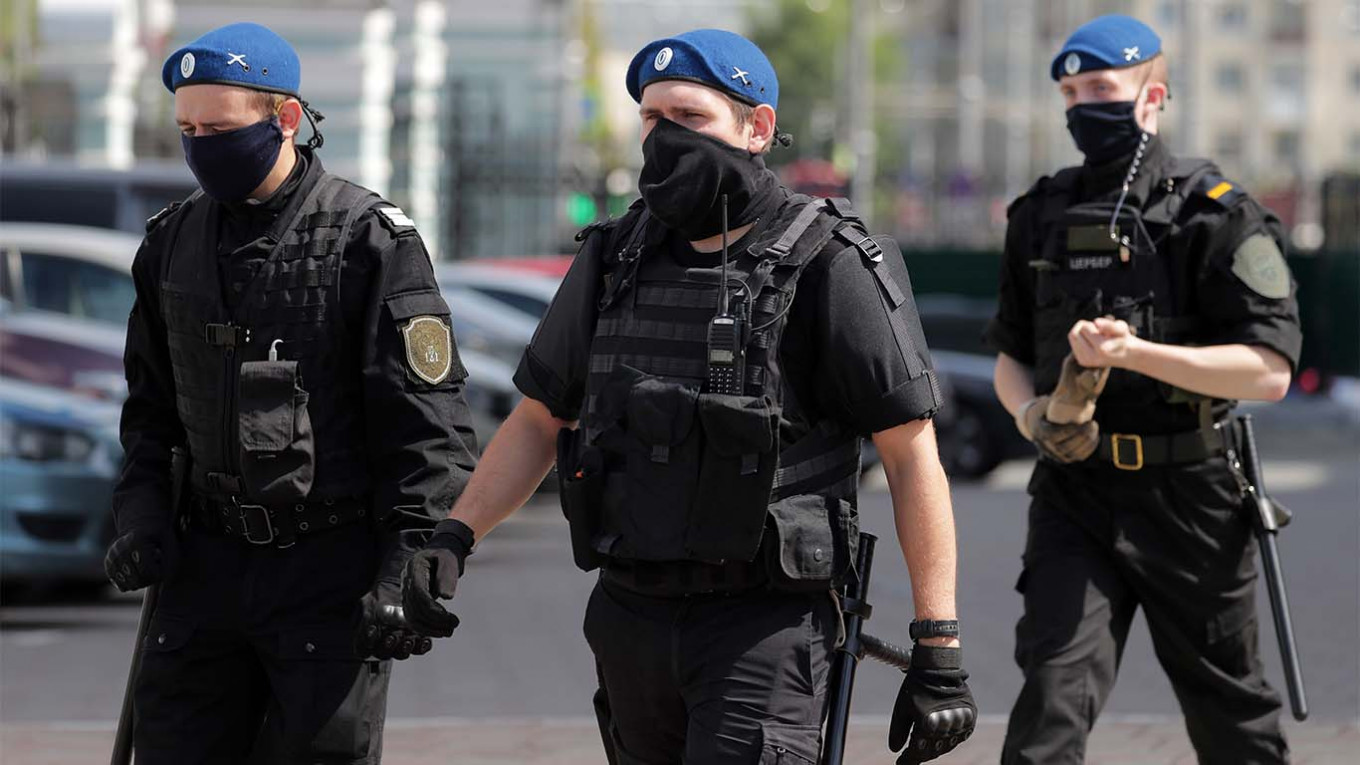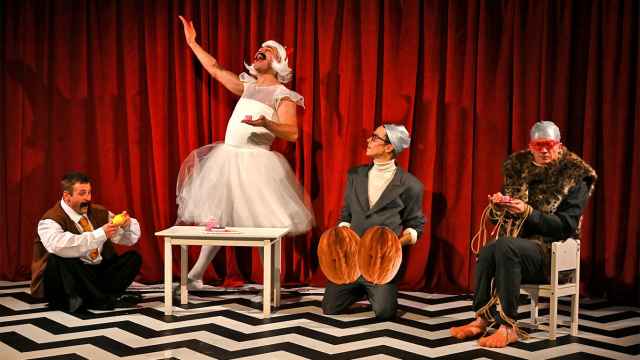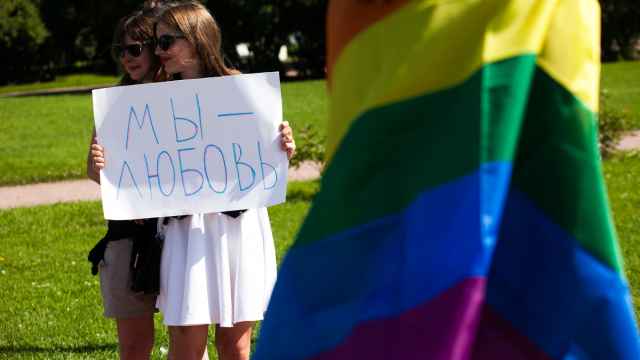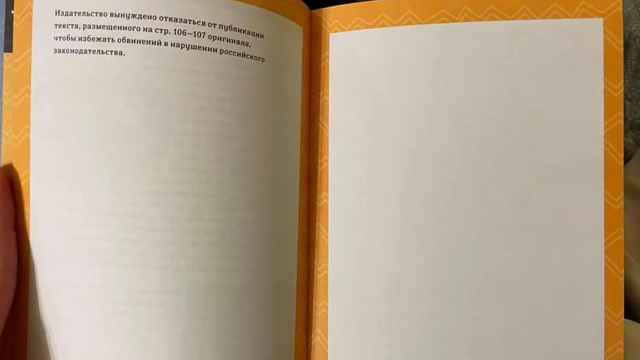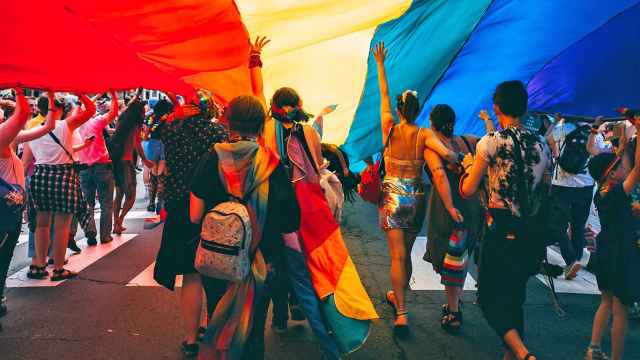Dozens of men in Cossack military uniforms have been filmed patrolling the streets of Russia’s fourth-largest city of Yekaterinburg during its Pride Week, local media reported Monday.
The group briefly detained at least one “absolutely heterosexual” student because he had dyed hair and wore an earring, according to the e1.ru news website.
“Why’d you dress up like this? Are you one of them?” the student recounted one of the Cossacks as saying to him. “Do you even know that we control the propaganda of gayness among the people?”
Russian officials have used a 2013 law banning "propaganda" of gay relationships toward minors as justification for banning gay pride events and prosecuting LGBT activists.
The student, 19-year-old Alexander Zinovyev, fired back at the Cossacks and defended his right to dress as he pleases, writing “stop harassing us, mind your own business!”
“The LGBT topic isn’t that interesting to me,” Zinovyev wrote in an article for e1.ru. “I just think it has nothing to do with me. Or so I thought, rather.”
Ural Pride Week's first day was also marred when organizers were forced to cancel a tour of Yekaterinburg’s “queer places,” e1.ru reported.
Prosecutors have warned the event's organizers against violating the "gay propaganda" law during their festivities.
“We’ll be checking how the LGBT movement representatives comply with Russian legislation,” Oleg Bogunevich, the deputy head of a local Cossack organization, told the Ura.ru news website.
Around 50 Cossacks were involved in the anti-LGBT patrols, it reported.
Opponents of the LGBT activists have organized a rival “traditional values” week that includes a family parade and an Orthodox Christian fair.
The patrols come after Russia adopted a set of wide-ranging constitutional changes, one of which adds language defining marriage as a union between a man and a woman to the Constitution.
A Message from The Moscow Times:
Dear readers,
We are facing unprecedented challenges. Russia's Prosecutor General's Office has designated The Moscow Times as an "undesirable" organization, criminalizing our work and putting our staff at risk of prosecution. This follows our earlier unjust labeling as a "foreign agent."
These actions are direct attempts to silence independent journalism in Russia. The authorities claim our work "discredits the decisions of the Russian leadership." We see things differently: we strive to provide accurate, unbiased reporting on Russia.
We, the journalists of The Moscow Times, refuse to be silenced. But to continue our work, we need your help.
Your support, no matter how small, makes a world of difference. If you can, please support us monthly starting from just $2. It's quick to set up, and every contribution makes a significant impact.
By supporting The Moscow Times, you're defending open, independent journalism in the face of repression. Thank you for standing with us.
Remind me later.


